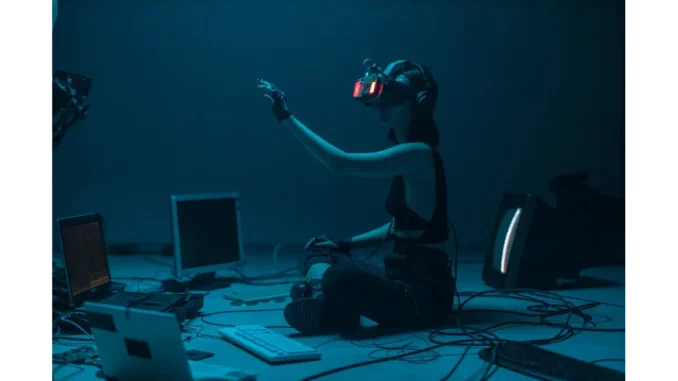
In the midst of a swiftly evolving global landscape, the convergence of artificial intelligence (AI) and healthcare emerges as a beacon of innovation, set to redefine the methodologies of diagnosing and treating medical conditions. To delve deeper into this transformative intersection, I had the privilege of conversing with Dr. Melissa Hartman, an independent healthcare analyst based in Louisiana. Her insights, drawn from personal experiences, illuminate the significant impact AI has had on healthcare diagnostics in the region.
As we settled into our conversation at a quaint café in Baton Rouge, Dr. Hartman conveyed an unmistakable shift she has observed in recent years. “AI has become a pivotal force in healthcare diagnostics,” she remarked, her enthusiasm palpable. “The technology’s capability to swiftly and precisely analyse vast datasets is revolutionary. This is not merely about technology for its own sake; it’s about enhancing the accuracy of diagnoses and ultimately improving patient outcomes.”
Dr. Hartman underscored the multifaceted importance of AI in modern healthcare. Central to its utility is AI’s proficiency in processing intricate datasets, enabling it to detect patterns and anomalies that may elude human observation. “In Louisiana, where we encounter a diverse array of health issues, this capability is indispensable,” she explained. “AI enhances diagnostic accuracy, which is foundational to effective treatment.” Beyond diagnostics, AI’s utility extends to streamlining administrative functions, which is a boon for healthcare facilities managing limited budgets and increasing patient volumes. “Automating routine tasks like appointment scheduling and billing allows healthcare professionals to concentrate more on patient care,” Dr. Hartman noted. “This reduction in administrative burden also minimises human errors in data management, a significant advantage.”
Moreover, Dr. Hartman recounted several instances in Louisiana where AI has significantly bolstered diagnostic accuracy. “Diagnostic errors can have severe repercussions, both financially and in terms of patient health,” she stated. “AI systems can predict disease progression and recommend interventions with unparalleled precision, which is crucial for detecting diseases in their nascent stages when they are most treatable.” A particularly compelling example she shared highlighted AI’s role in identifying early signs of diabetic retinopathy, a leading cause of blindness. “AI algorithms can analyse retinal images with exceptional accuracy, often before symptoms manifest,” Dr. Hartman elaborated. “This early detection is crucial and can prevent severe complications for patients.”
Beyond the technical advancements, Dr. Hartman emphasised AI’s positive influence on the patient experience. “AI-driven chatbots and virtual assistants are increasingly prevalent,” she said. “They provide patients with timely information and support, enhancing engagement and satisfaction. Patients feel more involved in their care decisions, which is empowering.” Furthermore, predictive analytics, another AI-driven innovation, plays a vital role in personalising patient care. “These tools enable us to tailor treatments to individual patients,” Dr. Hartman observed. “It’s no longer a one-size-fits-all approach. AI ensures that each patient receives the optimal care they require.”
As our discussion drew to a close, Dr. Hartman reflected on the future of AI in healthcare diagnostics. “The potential applications are limitless,” she said, her eyes bright with anticipation. “From improving early detection rates to supporting clinical decision-making processes, AI’s contributions are invaluable.” She envisaged a future where, as technology continues to advance, the integration of AI into healthcare systems would become increasingly seamless. “We stand on the brink of a new era in medical innovation,” she concluded. “Though challenges remain, the benefits far outweigh the risks. AI is poised to revolutionise healthcare, and Louisiana is ready to embrace it.”
As I departed the café, I was struck by the magnitude of the changes AI is ushering into healthcare, particularly in diagnostics. Dr. Hartman’s insights painted a vivid portrait of a future where technology and medicine collaborate synergistically to enhance lives. It is a future that promises not only advancements in medical science but also a profound transformation in our perception and experience of healthcare as a whole.


Be the first to comment